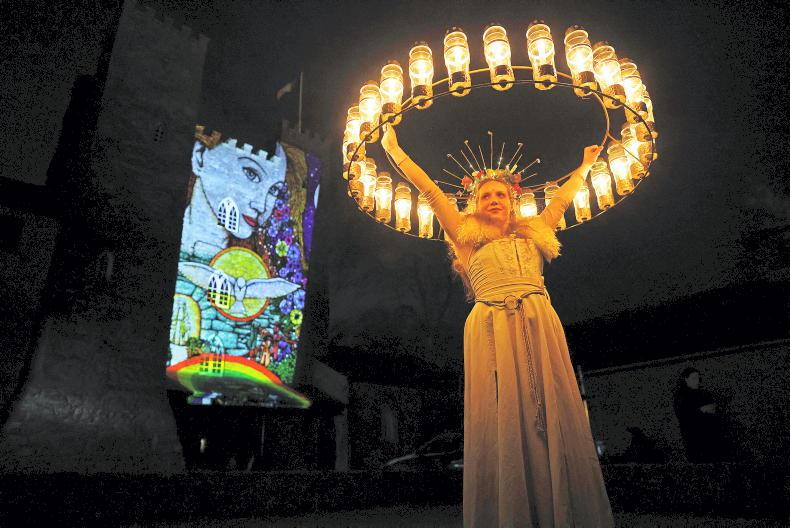It is not often that a critically acclaimed play, currently wowing audiences in Dublin and getting lots of coverage outside Ireland, tours around the country. Tartuffe is an exception and a must-see if you have an opportunity to get a ticket.
Wait for it. Tartuffe, or The Imposter, (Tartuffe, ou l’Imposteur) is a comedy that was first performed in 1664 – and that is not a typo! Written by Molière, it is considered to be one of his greatest works, and the author himself is often described as France’s Shakespeare. I say that with some trepidation, as many people immediately switch off with mention of the great dramatist.
Modern Macbeth
Thankfully, many directors, in an effort to attract a younger audience, will nowadays set the works of Shakespeare in modern times. Recently, I had the pleasure of seeing Macbeth in a modern setting that was enthusiastically received by an audience that averaged about 18 years of age.
Tartuffe was a controversial play when it was first performed, denounced by the Catholic Church. It did not find favour with King Louis XIV, who made every effort to suppress it. Roll on more than 450 years later, and Frank McGuinness’ new adaptation of the work has few faults, and much to recommend it.
A synopsis of the plot is as follows. It tells the story of Orgon, played by Frank McCusker, whose family is up in arms because he and his mother, Madame Pernelle (magnificently portrayed by Geraldine Plunkett), have fallen under the influence of Tartuffe (Ryan Donaldson), a pious fraud and a vagrant prior to Orgon’s help.

Tartuffe is a must-see.
Tartuffe pretends to be pious and to speak with divine authority, while Orgon and his mother no longer take any action without first consulting him. Meanwhile, Tartuffe is trying to seduce Orgon’s wife, Elmire (Aislín McGuckin), with a view to taking ownership of their property, but she is wise to his motives, seems to be open to his advances, and the scenes featuring Elmire and Tartuffe are so funny.
Opulently modern
McGuinness remains faithful to Molière’s use of rhyming couplet, adding a more contemporary language, and a hint of how well this works is how he rhymes hurly-burly with short and curlies. Costumes and the lavish set remind us that this work was set in the 17th century, interspersed with pop and techno music which includes the work of Pet Shop Boys and Depeche Mode.
Mobile telephones, dance routines that would be at home on TikTok, and trainers worn with ball gowns, are just a few examples of how the various directors of this production have brought it up to date, so to speak.
The star of the show, appropriately, is Donaldson in the title role, but the 12-strong ensemble cast in its entirety deliver with great aplomb. The setting is a big house, but it could be anywhere, and it is not obviously set in Ireland, in spite of some language that audiences will enjoy and feel at home with.
No two ways about it, this is a play that should not be missed.
Dates
Currently – 8 April: Abbey Theatre, Dublin 12 – 15 April: The Lime Tree Theatre, Limerick18 – 22 April: The Black Box, Galway25 – 29 April: The Lyric Theatre, Belfast3 – 6 May: An Grianán Theatre, Donegal9 – 13 May: Cork Opera House, Cork Read more
The Front Row: a look at what is happening in the world of theatre for 2023
‘I have yet to meet one single person who has regretted coming out’
It is not often that a critically acclaimed play, currently wowing audiences in Dublin and getting lots of coverage outside Ireland, tours around the country. Tartuffe is an exception and a must-see if you have an opportunity to get a ticket.
Wait for it. Tartuffe, or The Imposter, (Tartuffe, ou l’Imposteur) is a comedy that was first performed in 1664 – and that is not a typo! Written by Molière, it is considered to be one of his greatest works, and the author himself is often described as France’s Shakespeare. I say that with some trepidation, as many people immediately switch off with mention of the great dramatist.
Modern Macbeth
Thankfully, many directors, in an effort to attract a younger audience, will nowadays set the works of Shakespeare in modern times. Recently, I had the pleasure of seeing Macbeth in a modern setting that was enthusiastically received by an audience that averaged about 18 years of age.
Tartuffe was a controversial play when it was first performed, denounced by the Catholic Church. It did not find favour with King Louis XIV, who made every effort to suppress it. Roll on more than 450 years later, and Frank McGuinness’ new adaptation of the work has few faults, and much to recommend it.
A synopsis of the plot is as follows. It tells the story of Orgon, played by Frank McCusker, whose family is up in arms because he and his mother, Madame Pernelle (magnificently portrayed by Geraldine Plunkett), have fallen under the influence of Tartuffe (Ryan Donaldson), a pious fraud and a vagrant prior to Orgon’s help.

Tartuffe is a must-see.
Tartuffe pretends to be pious and to speak with divine authority, while Orgon and his mother no longer take any action without first consulting him. Meanwhile, Tartuffe is trying to seduce Orgon’s wife, Elmire (Aislín McGuckin), with a view to taking ownership of their property, but she is wise to his motives, seems to be open to his advances, and the scenes featuring Elmire and Tartuffe are so funny.
Opulently modern
McGuinness remains faithful to Molière’s use of rhyming couplet, adding a more contemporary language, and a hint of how well this works is how he rhymes hurly-burly with short and curlies. Costumes and the lavish set remind us that this work was set in the 17th century, interspersed with pop and techno music which includes the work of Pet Shop Boys and Depeche Mode.
Mobile telephones, dance routines that would be at home on TikTok, and trainers worn with ball gowns, are just a few examples of how the various directors of this production have brought it up to date, so to speak.
The star of the show, appropriately, is Donaldson in the title role, but the 12-strong ensemble cast in its entirety deliver with great aplomb. The setting is a big house, but it could be anywhere, and it is not obviously set in Ireland, in spite of some language that audiences will enjoy and feel at home with.
No two ways about it, this is a play that should not be missed.
Dates
Currently – 8 April: Abbey Theatre, Dublin 12 – 15 April: The Lime Tree Theatre, Limerick18 – 22 April: The Black Box, Galway25 – 29 April: The Lyric Theatre, Belfast3 – 6 May: An Grianán Theatre, Donegal9 – 13 May: Cork Opera House, Cork Read more
The Front Row: a look at what is happening in the world of theatre for 2023
‘I have yet to meet one single person who has regretted coming out’










SHARING OPTIONS